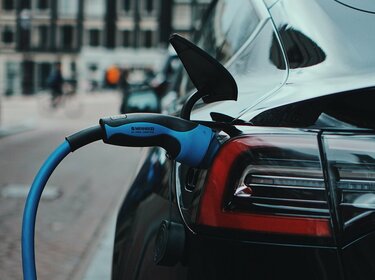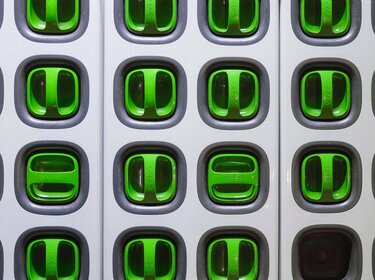Berlin, 14 June 2023 - After two years of intensive scrutiny, the EU Parliament today officially endorsed the compromise text reached with EU Member States on the new Battery Regulation. The new regulation will replace the current Battery Directive from 2006 and expand the existing requirements. The regulation aims to create a circular economy for the battery sector by including all stages of the battery life cycle - from raw material extraction to design, production, labelling, recycling and recovery. Johannes Kröhnert, EU Policy Officer and Head of Brussels Office of the TÜV Association, states:
"Batteries are a key technology in the transition to a climate-neutral circular economy. With the new Battery Regulation, the EU is focusing on the entire battery value chain and living up to its pioneering role in the transformation to a climate-neutral economy. Throughout the entire product life cycle, the comprehensive requirements ensure that the harmful effects of batteries on the environment are minimised and batteries can fully deliver on their sustainability promise."
For the first time, the new regulation sets minimum levels of recovered raw materials (recyclates) such as cobalt, lead and lithium. The so-called minimum levels of recycled content apply to industrial batteries, starter batteries and EV batteries. In addition, the regulation obliges manufacturers to declare the carbon footprint of their batteries. Later on, manufacturers must also observe and comply with due diligence obligations with regard to human and environmental standards along their value chain.
Mandatory conformity assessments strengthen confidence
Both the declarations on recycled content and carbon footprint as well as compliance with the due diligence obligations will in future be subject to mandatory assessment by independent conformity assessment bodies. Kröhnert:
"Consumers must be able to rely on the sustainability of batteries. This confidence will be strengthened by independent testing and certification. Independent assessment organisations such as the TÜV ensure that manufacturers' claims correspond to reality and are in line with the requirements of the Battery Regulation. The TÜV organisations are already carrying out extensive battery testing and are ready as partners to support manufacturers in implementing the new regulation."
First-time introduction of a digital product passport
The new Battery Regulation provides for a digital product passport for the first time at EU level. Information and data on individual batteries will be made digitally available across the entire value chain. This enables economic actors to make informed decisions throughout the entire lifecycle of batteries. For example, information on the extraction of raw materials, the battery condition and the reconditioning and repair of the battery will be documented. The TÜV organisations are currently also developing a conformity assessment programme to increase the value of the passport and speed up implementation as a member of the Global Battery Alliance.
New benefits for consumers
The digital battery passport will enable authorities and end-users to easily and reliably track the condition of batteries. It will also provide consumers with transparent information on the capacity, performance, durability and chemical composition of batteries. In the future, consumers will also be able to remove and replace batteries installed in electrical appliances themselves. Batteries for light means of transport such as electric bicycles can be replaced by independent professionals. The new requirements thus ensure a quick and consumer-friendly replacement.
What's next?
- The Battery Regulation replaces the previously applicable Battery Directive. As a regulation, it must be implemented directly in all member states.
- After the EU Parliament has approved the compromise draft, Member States still have to give green light.
- Once this is done, the new Battery Regulation will be published in the EU Official Journal. Then, member states will have six months to comply with the new requirements. For certain requirements, a longer transition period is foreseen.




